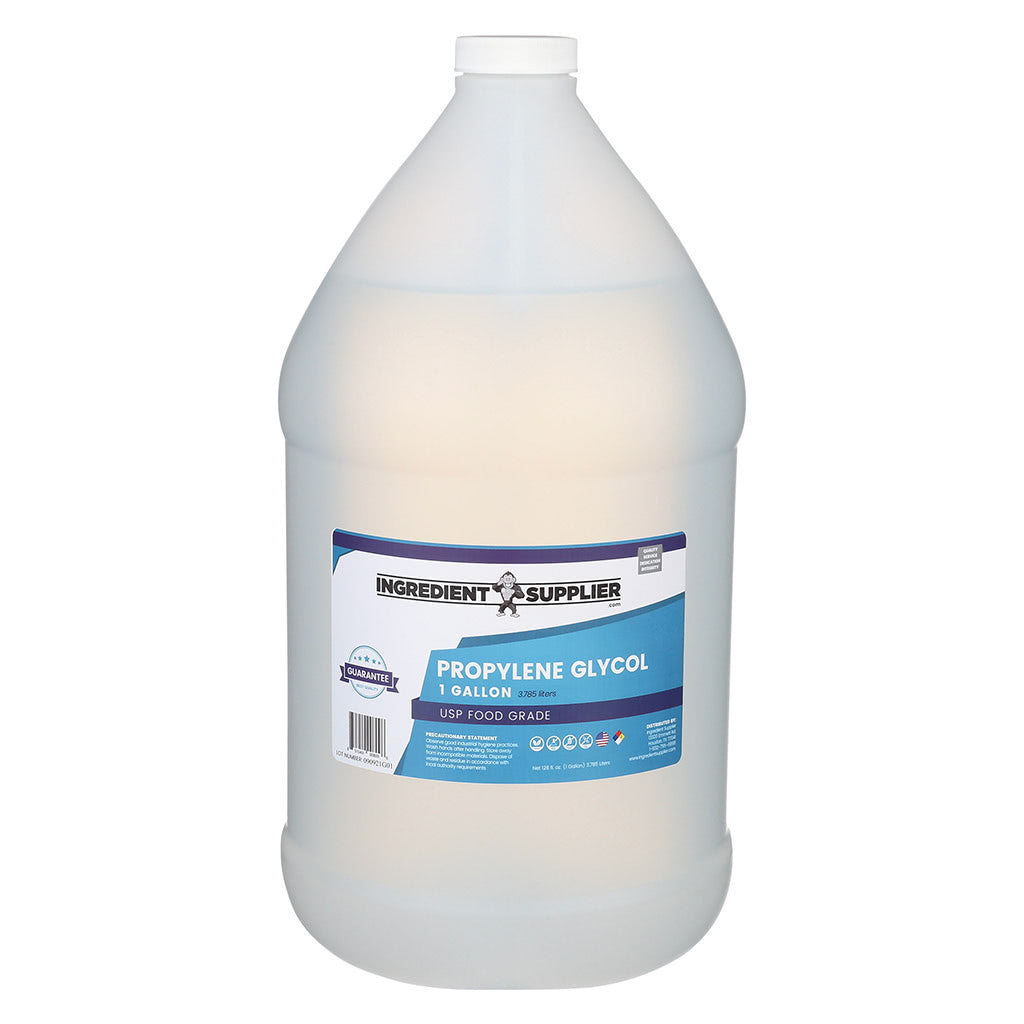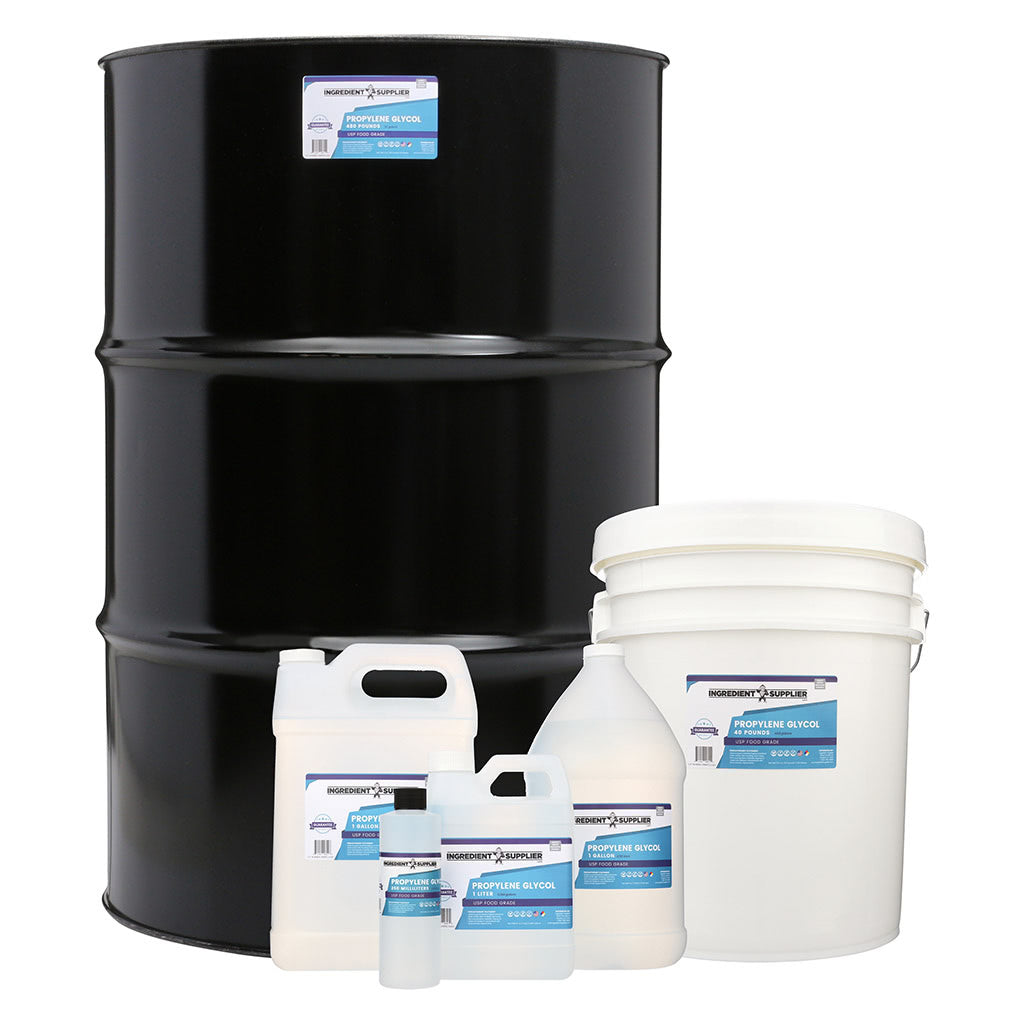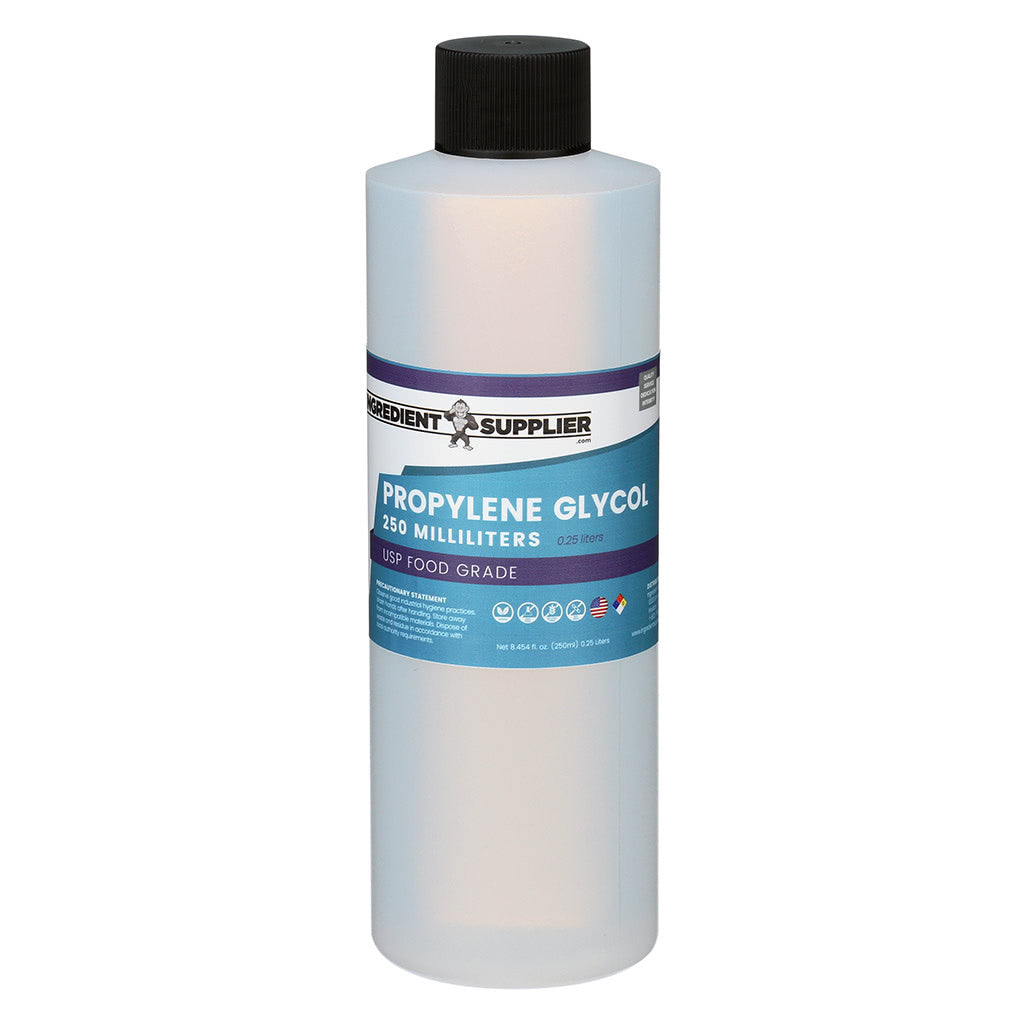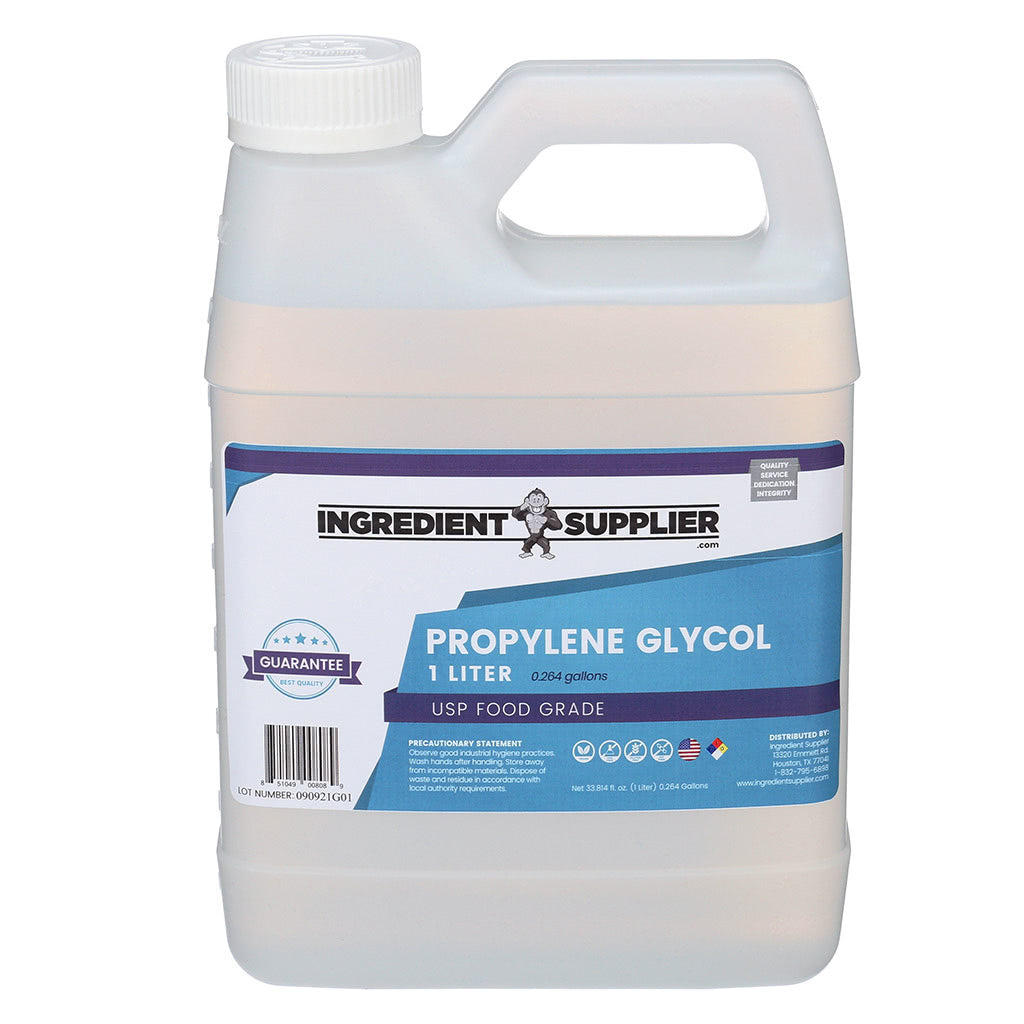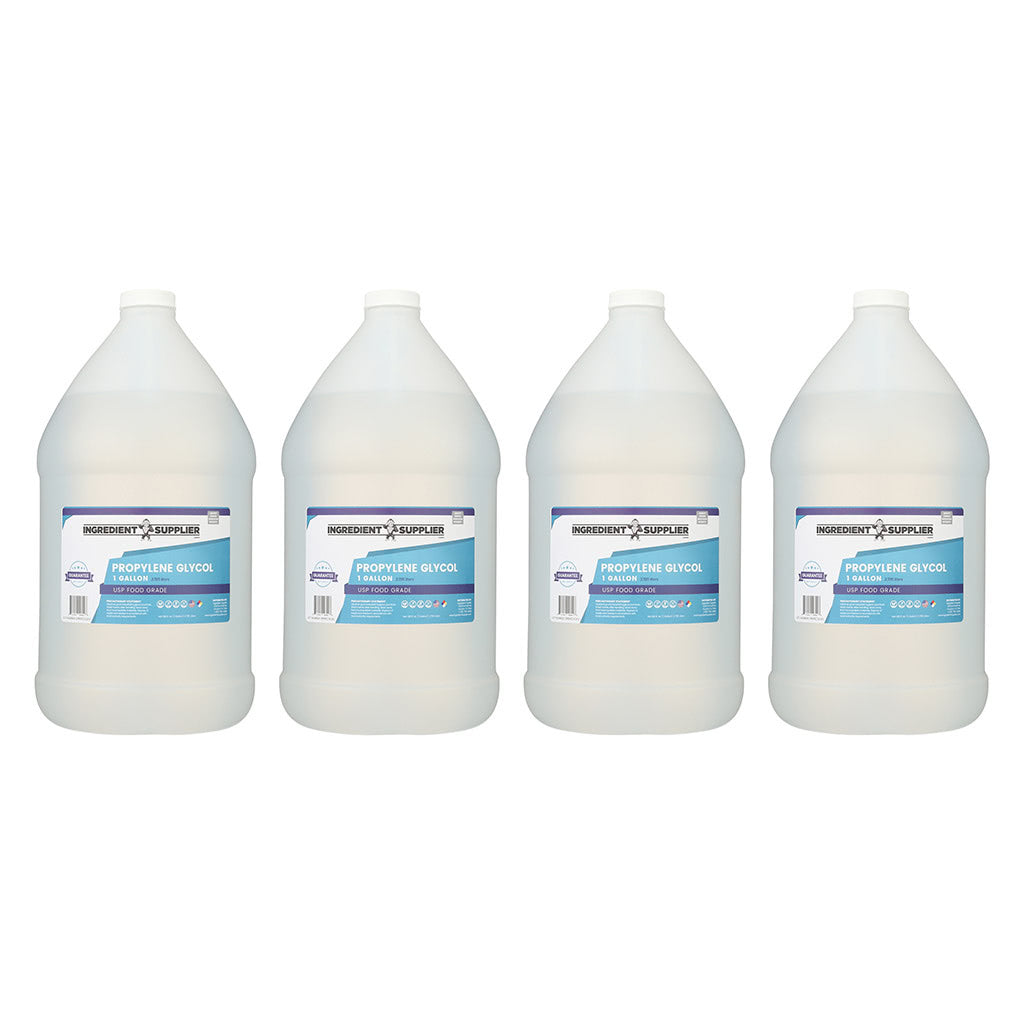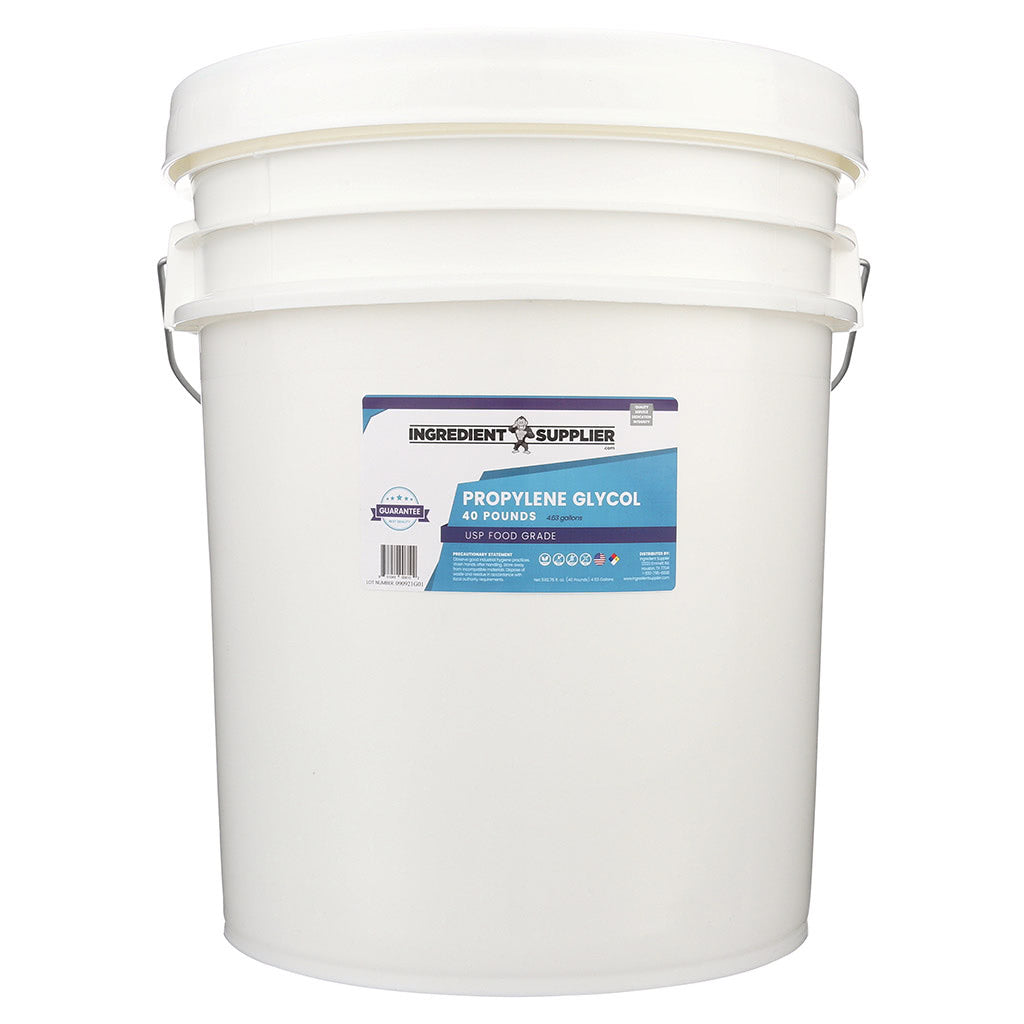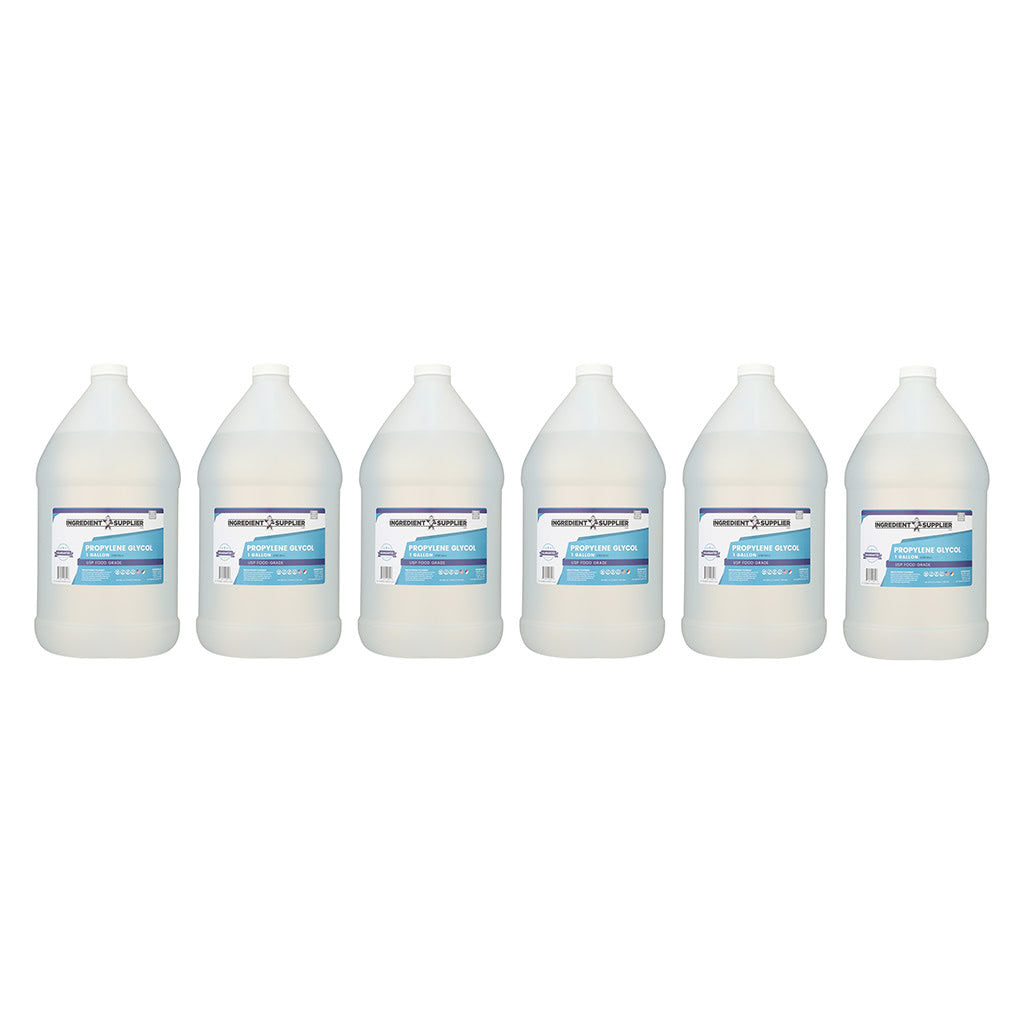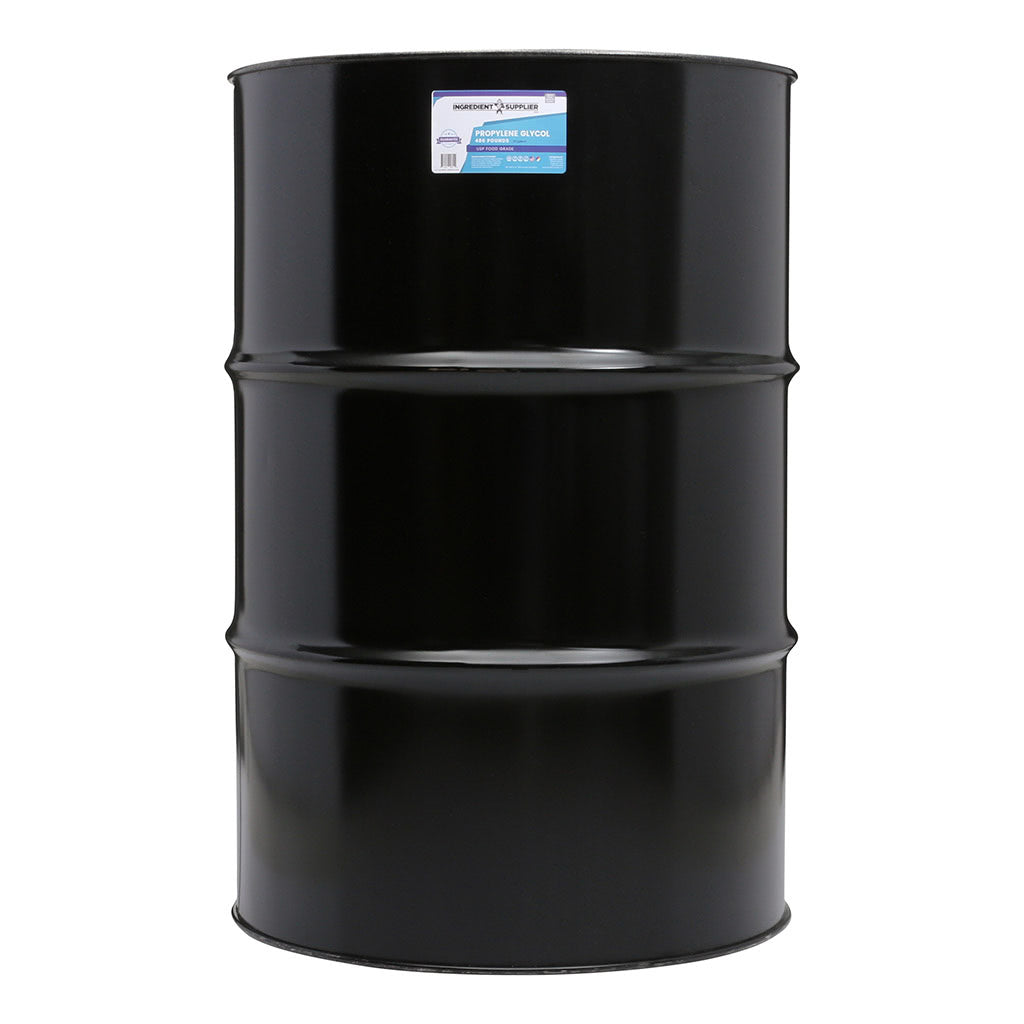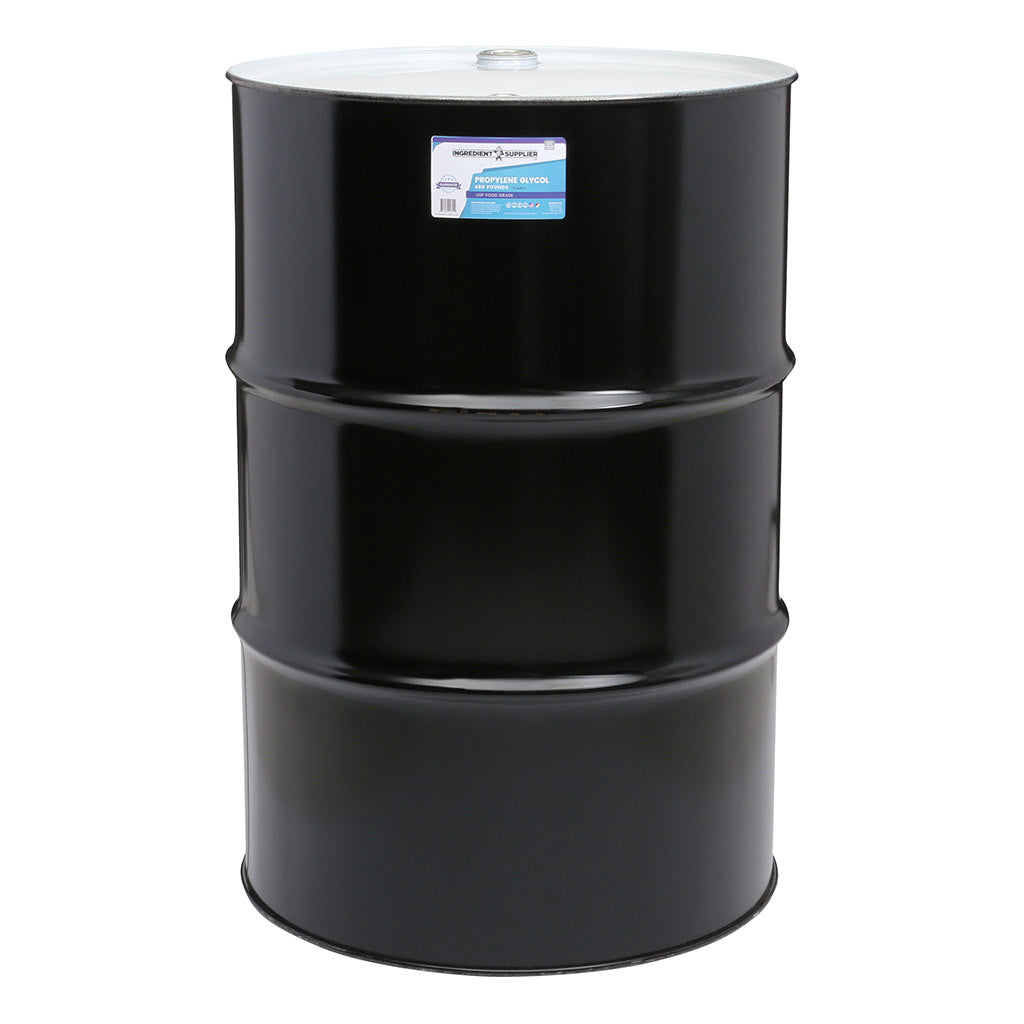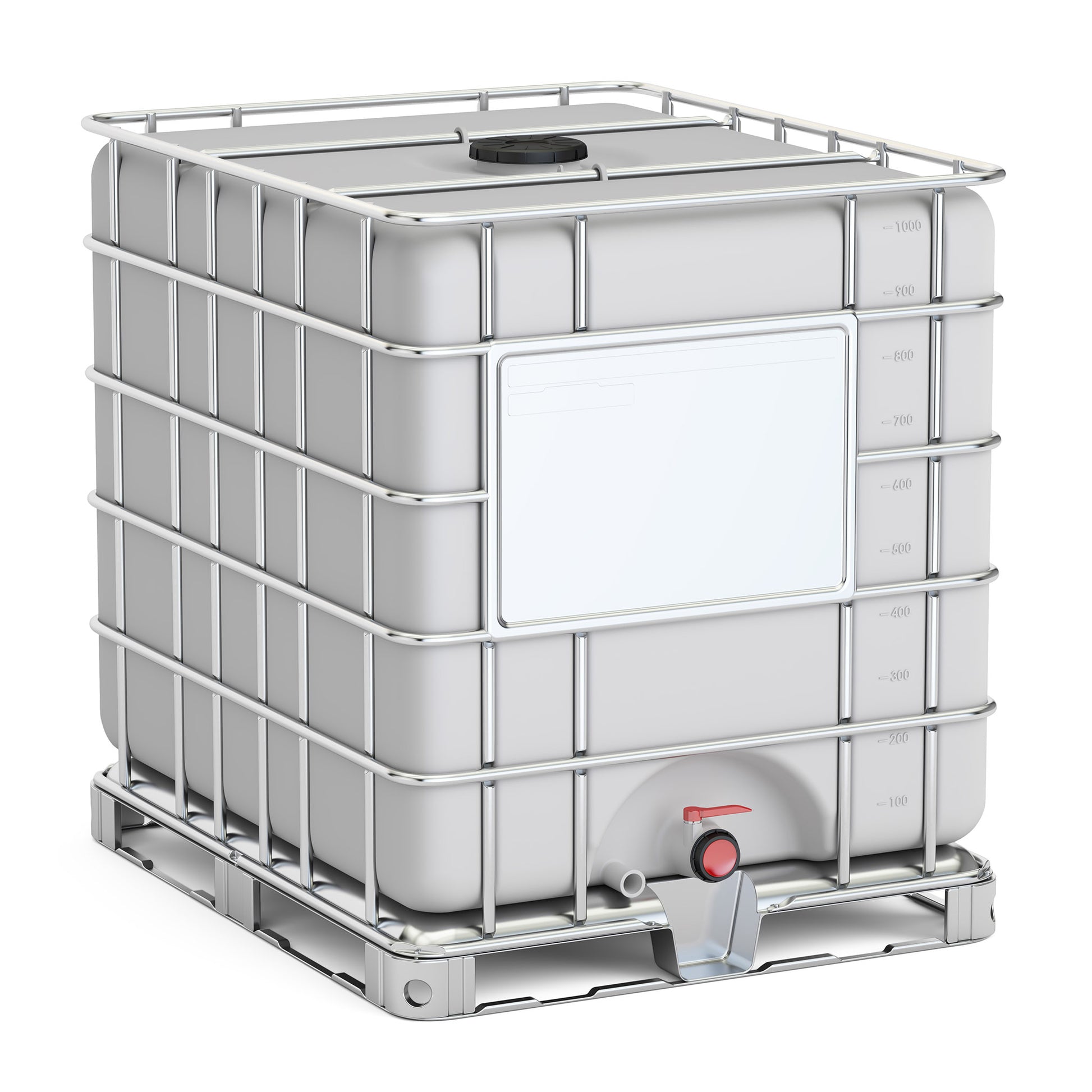Ingredient Supplier
Couldn't load pickup availability
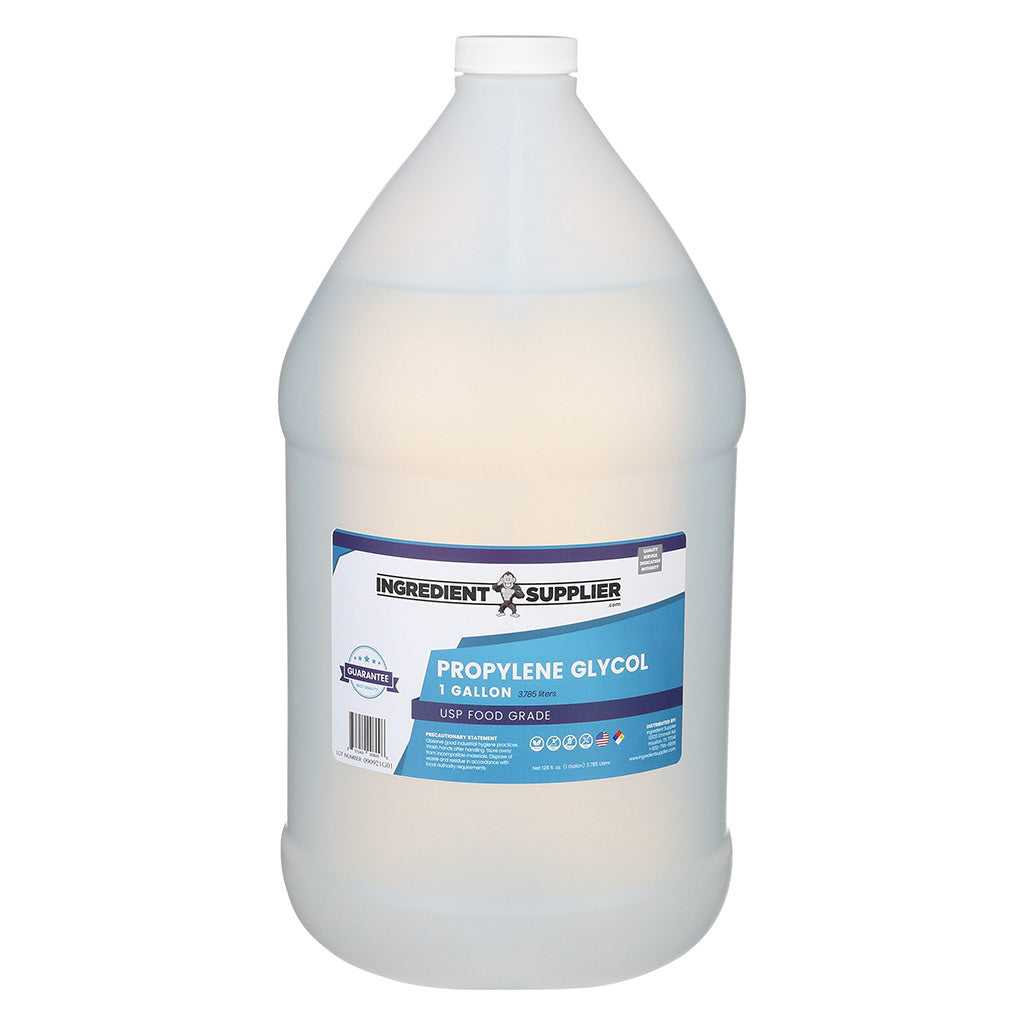
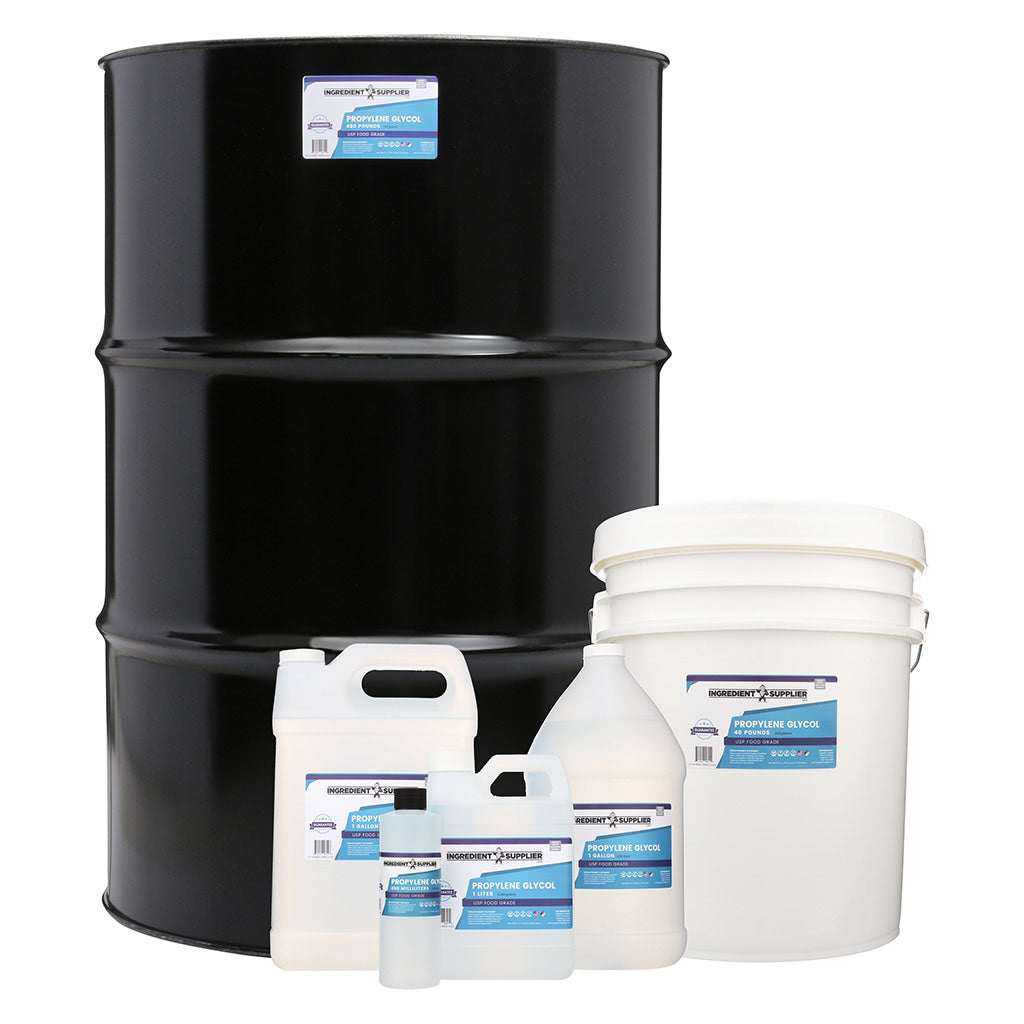
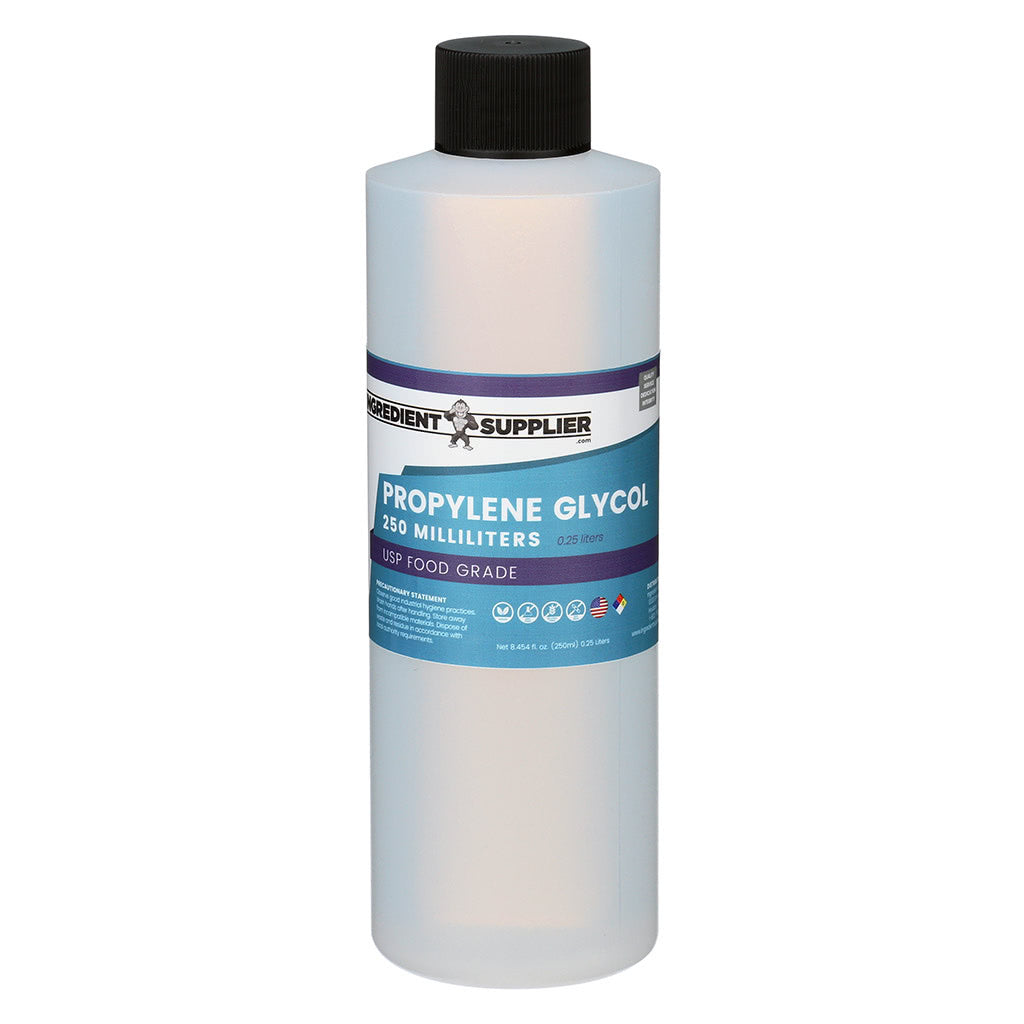
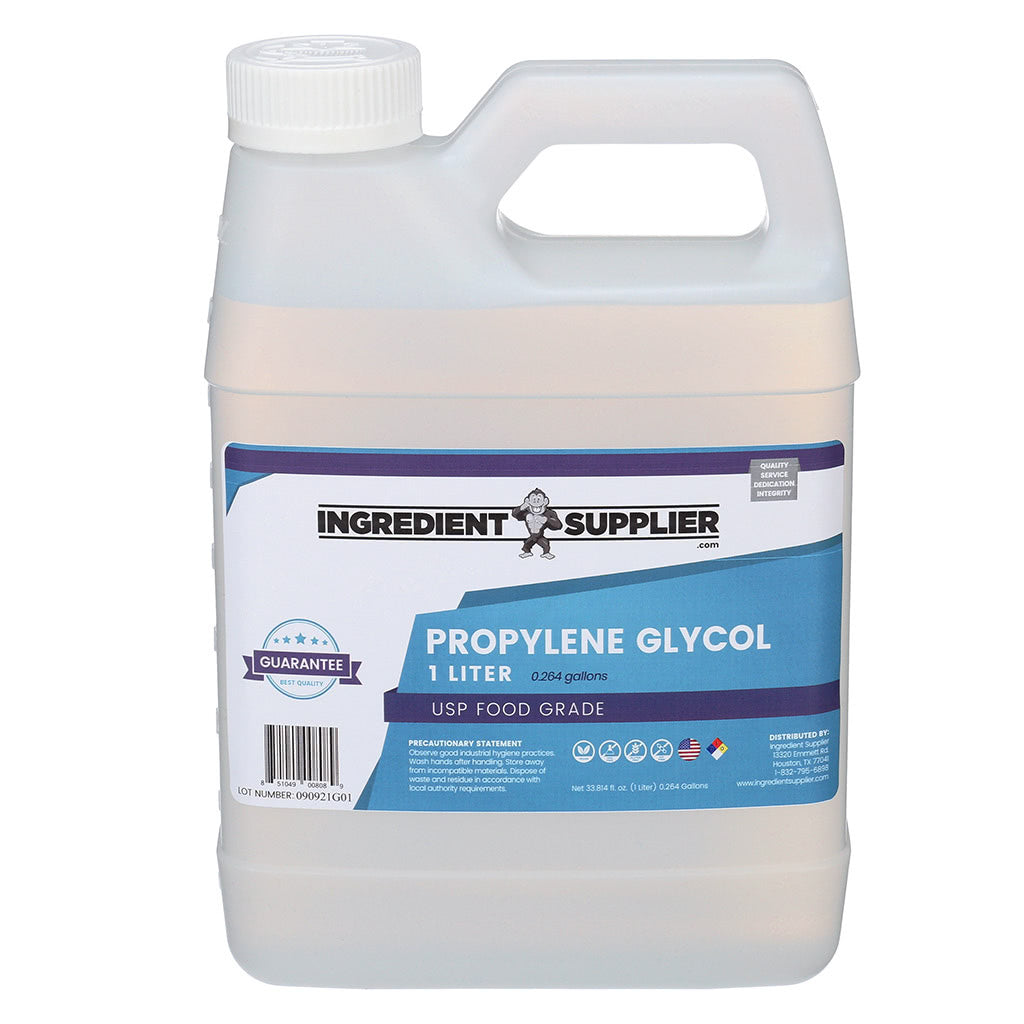
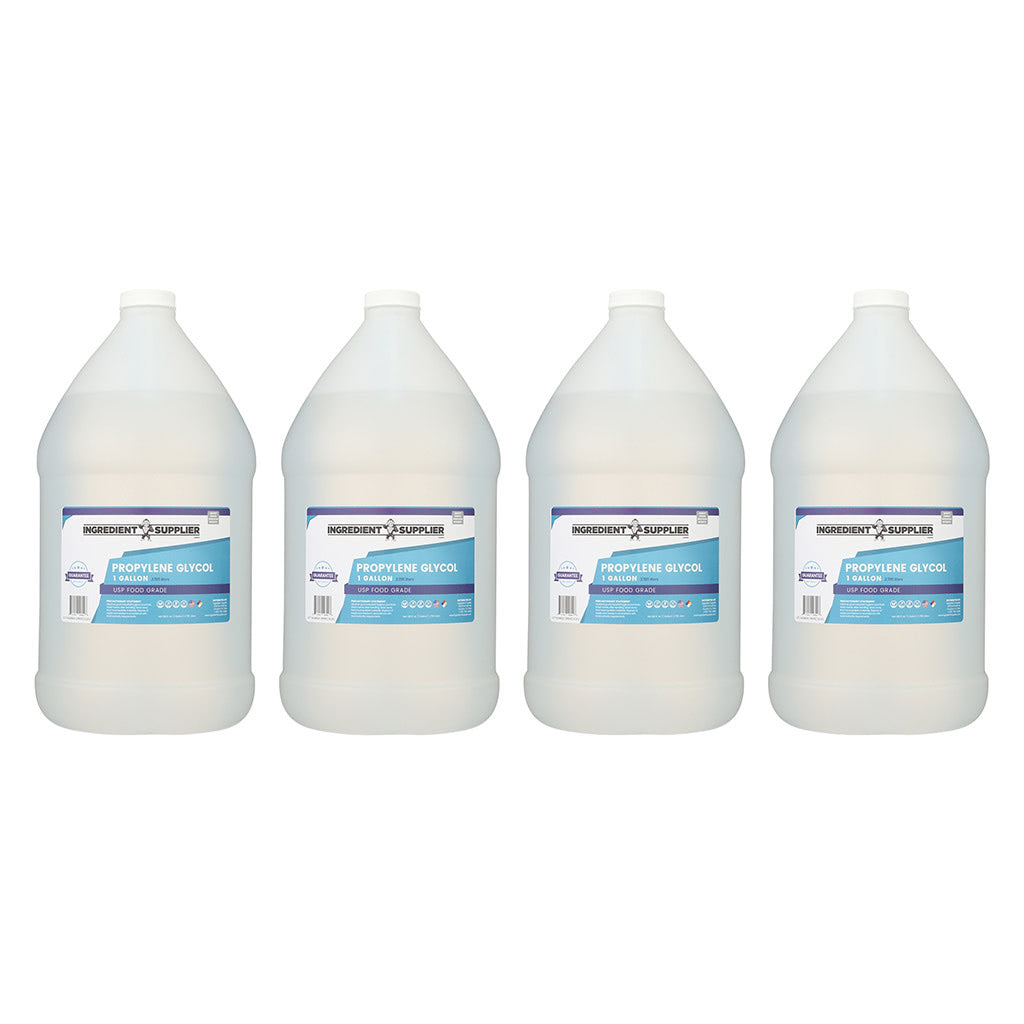
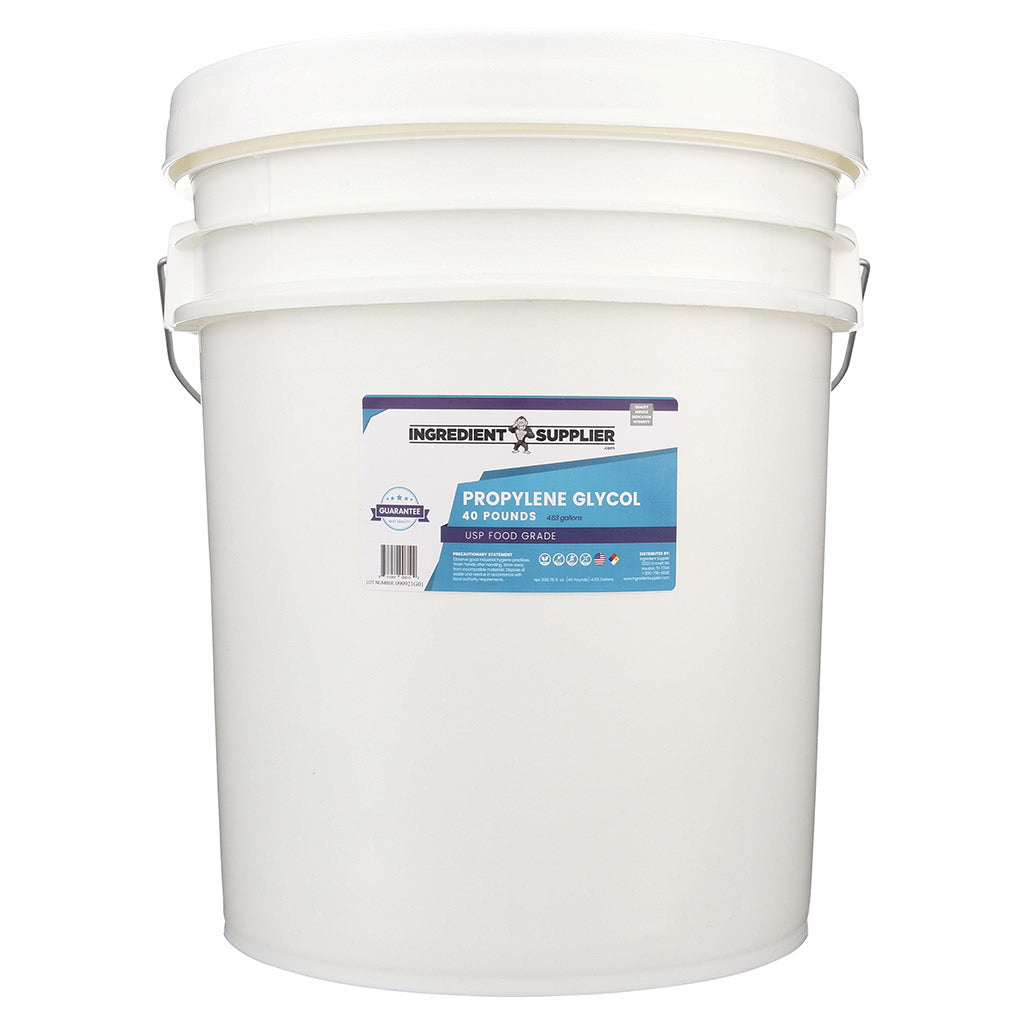
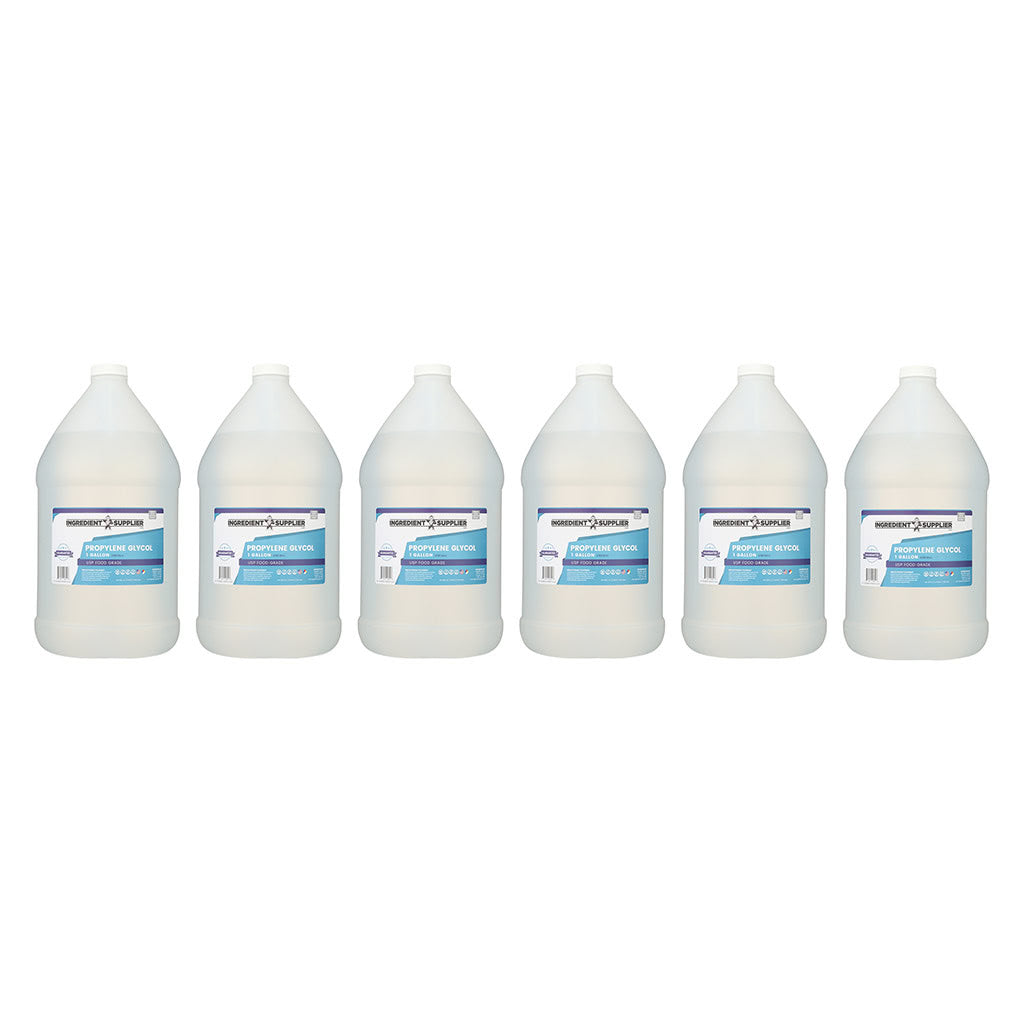
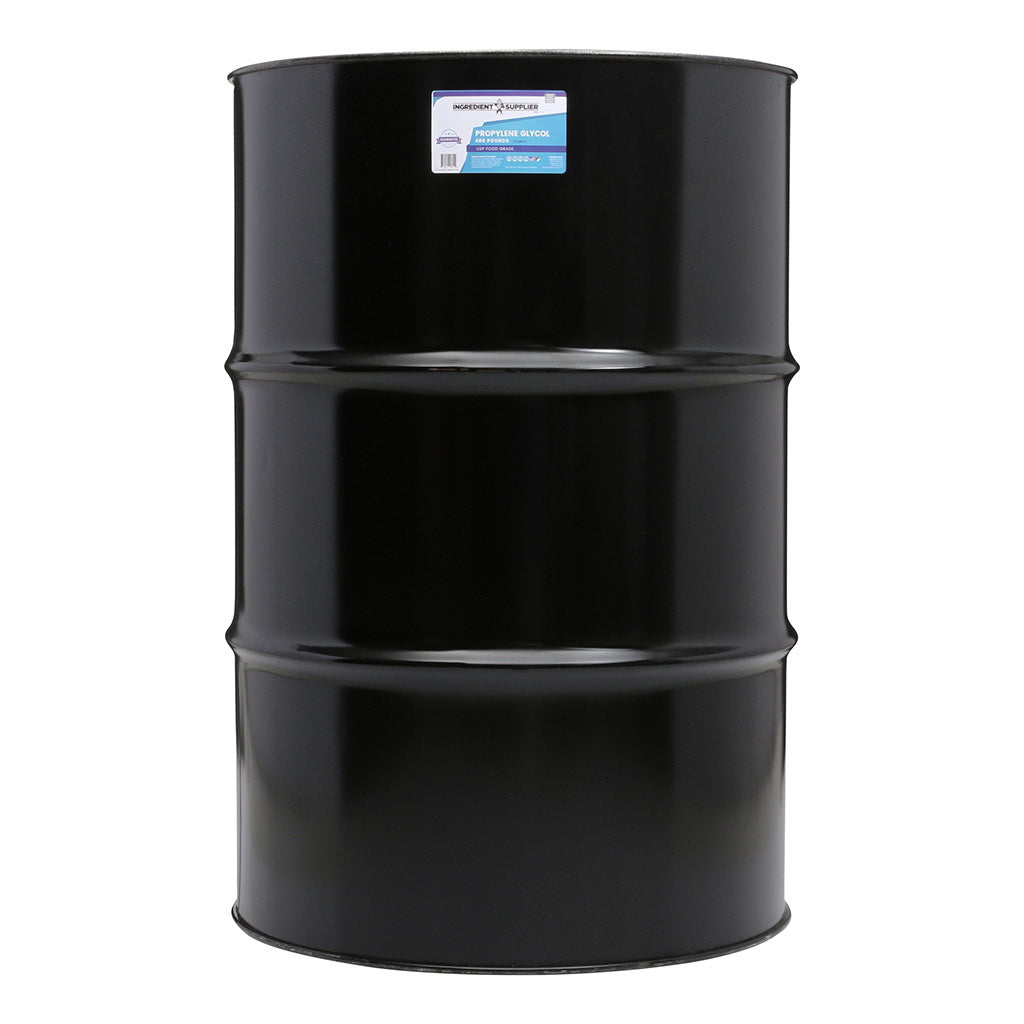
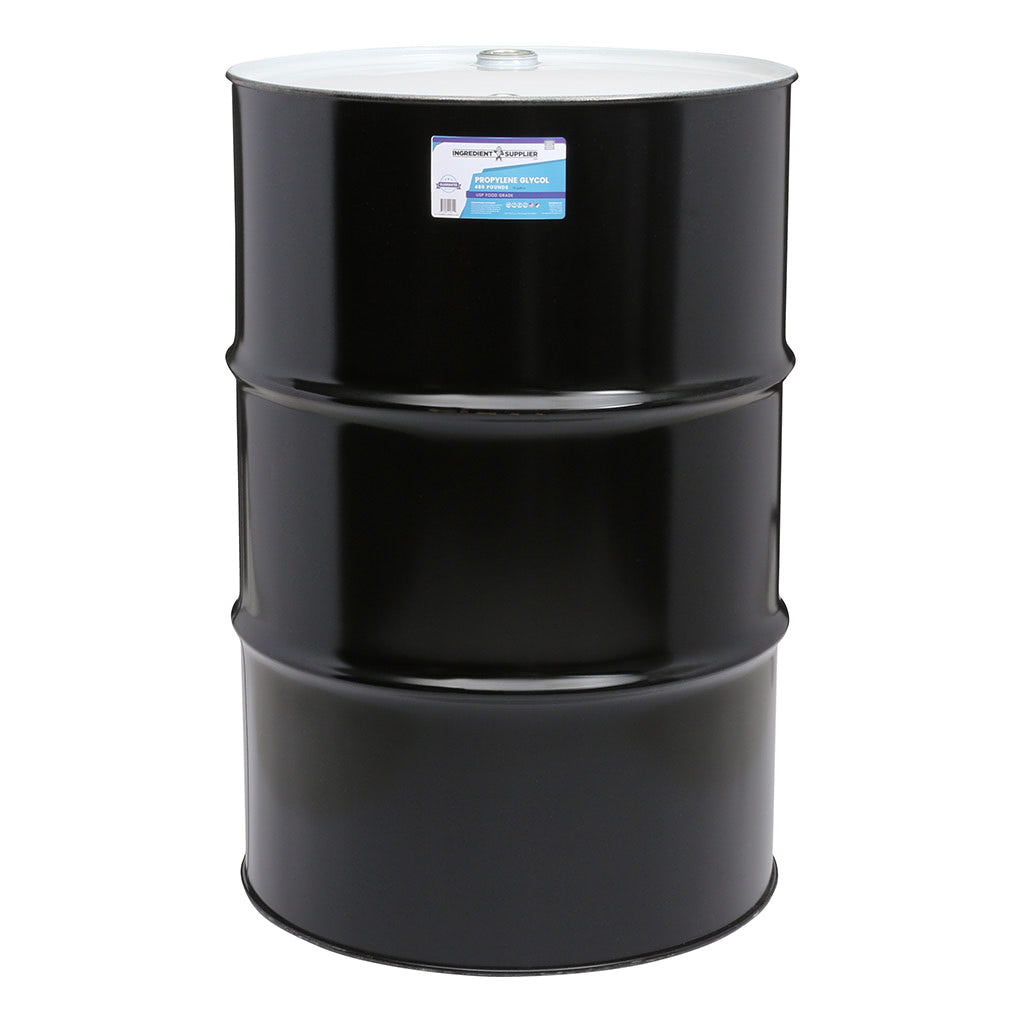
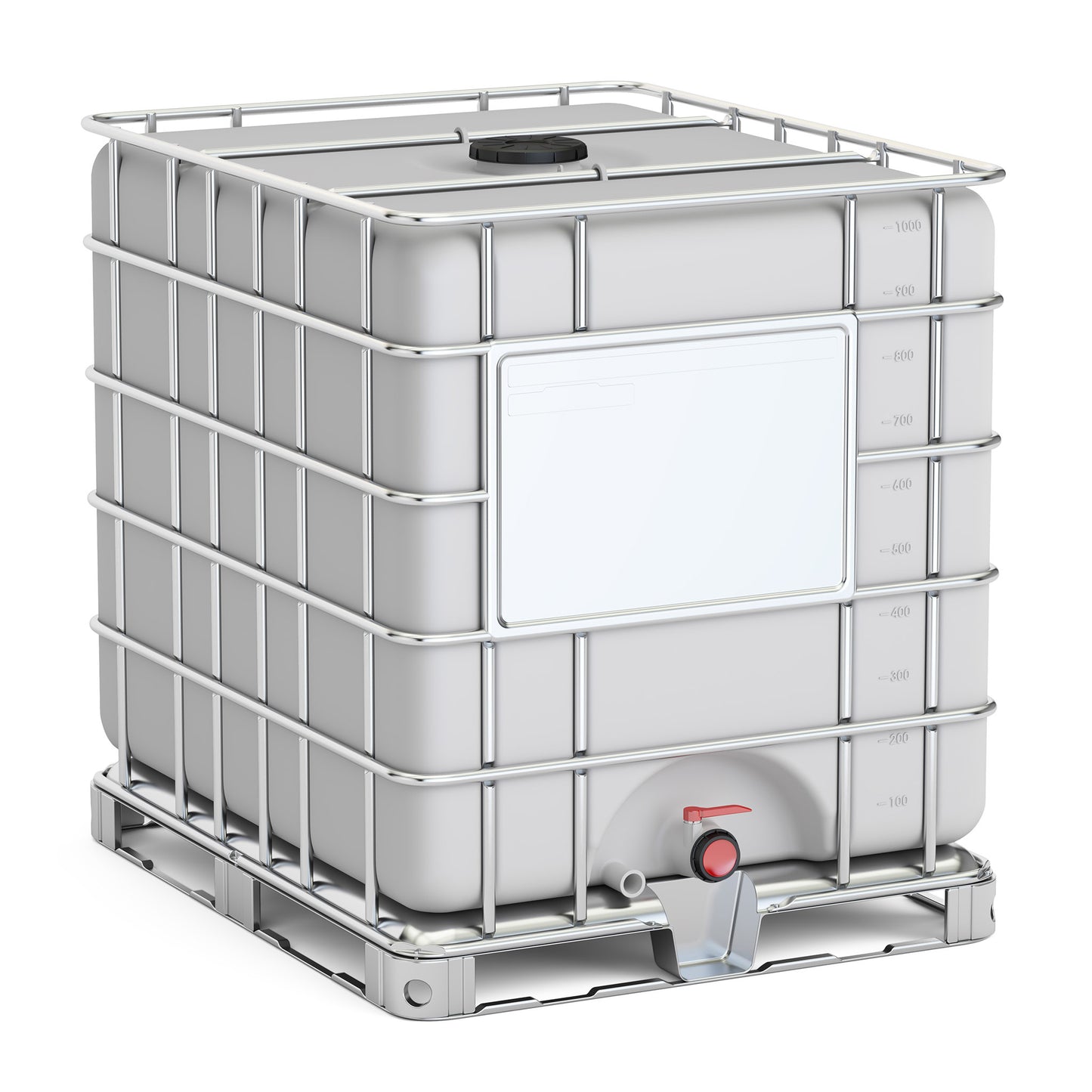

Download SDS
What is Propylene Glycol?
Propylene Glycol (PG) is a clear, colorless and almost completely odorless synthetic liquid. It is slightly viscous, water soluble, and hygroscopic, meaning it draws moisture from the air. This is an incredibly useful property that makes it valuable for many different products and processes.
How is Propylene Glycol Made?
Propylene Glycol is derived from petroleum, natural gas, or vegetable sources. It is a synthetic compound produced through the hydrogenolysis of glycerol (glycerin).
Benefits & Uses of Propylene Glycol
Propylene Glycol is mainly used as a food additive, however it can be applied to a variety of other settings as well. Depending on the use, Propylene Glycol can function as a humectant, solvent, emollient, and preservative. It is also gluten free and vegan.
-
Food
Since it is flavorless and has unique abilities to draw moisture from the air, Propylene Glycol is used to extend the shelf life of foods by locking in moisture and functions as an anti-caking agent, making color and flavor dissolve fully. This is especially useful for foods like cake icing, salad dressing, puddings, ice cream, sauces, and baking ingredients/mixes. Since it is slightly viscous, it also can strengthen dough and work as a thickener. -
Automotive
One of the main automotive functions of Propylene Glycol is as a nontoxic alternative to antifreeze, particularly for animal safety (over ethylene glycol based antifreeze which is toxic to animals and humans). Propylene Glycol can also be used as a deicer and coolant. -
Medical
Within the medical field, Propylene Glycol is used to help topical creams and ointments maintain their moisture. Additionally, Propylene Glycol helps provide a solvent and stabilizing aspect to drugs and injectable medications, such as phenytoin, diazepam, and lorazepam. Propylene Glycol is also used in antibacterial wipes, due to its ability to draw moisture from the air, and keeps the wipes from being dry. -
Cosmetics
The main use of Propylene Glycol within the cosmetics industry is to prevent cosmetics from melting at high temperatures. In addition to that, Propylene Glycol has many benefits to the skin and skincare. Due to its ability to function as a humectant, Propylene Glycol helps skin retain moisture, which helps to prevent early signs of aging on the skin. Propylene Glycol also helps to boost the effects of the active ingredients in products, and is safe for acne prone skin since it is not an oil. -
Hobby
Within the hobby realm, Propylene Glycol helps to create smoke and thin the viscosity for e cigarettes and vape juice. It also makes the smoke in smoke machines in theatrical productions. Propylene Glycol is an ingredient in various types of crafting resins including epoxy, unsaturated polyester, and polyurethane.
Dosage, Safety & Side Effects
The Food and Drug Administration (FDA) has classified propylene glycol as an additive that is “generally recognized as safe,” since 1973. The FDA also regulates the use of propylene glycol in food. It is not associated with any cancer and carries a very low risk of allergic reaction. Pregnant women and infants should avoid interacting with Propylene Glycol.
The Environmental Working Group has classified the risk of Propylene glycol as “moderately low.”
When Propylene Glycol is administered in medications, it is considered safe in small doses.

